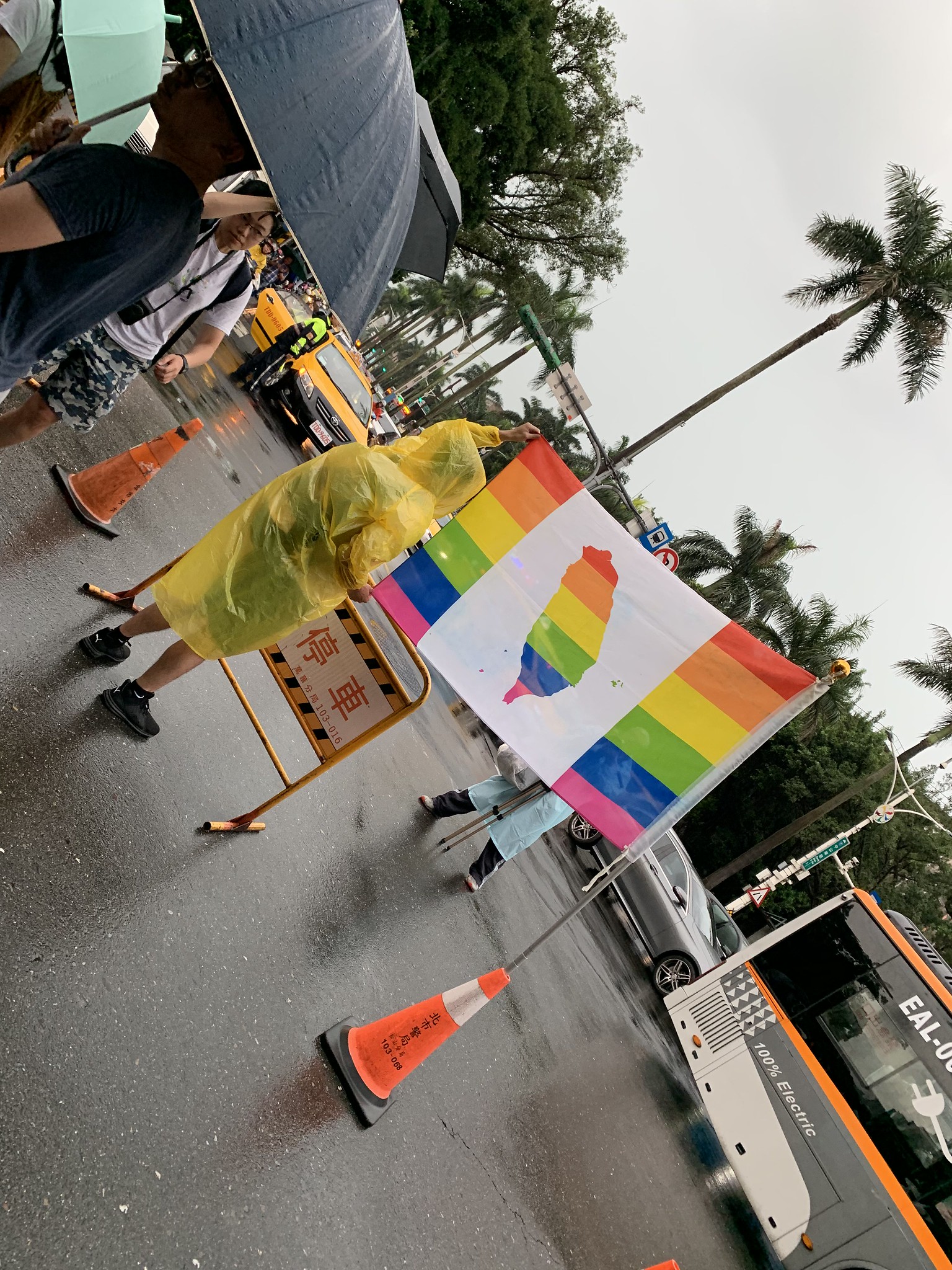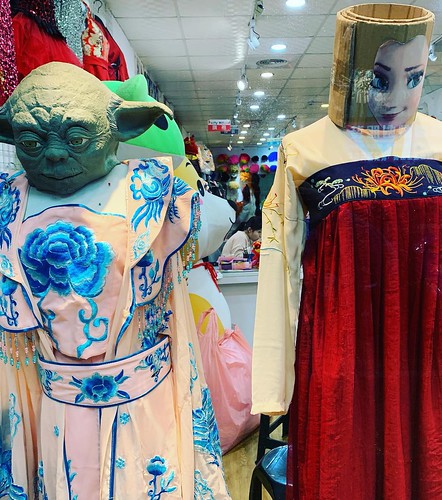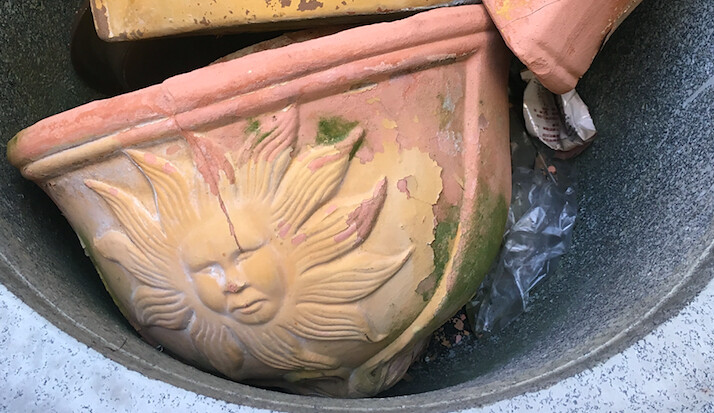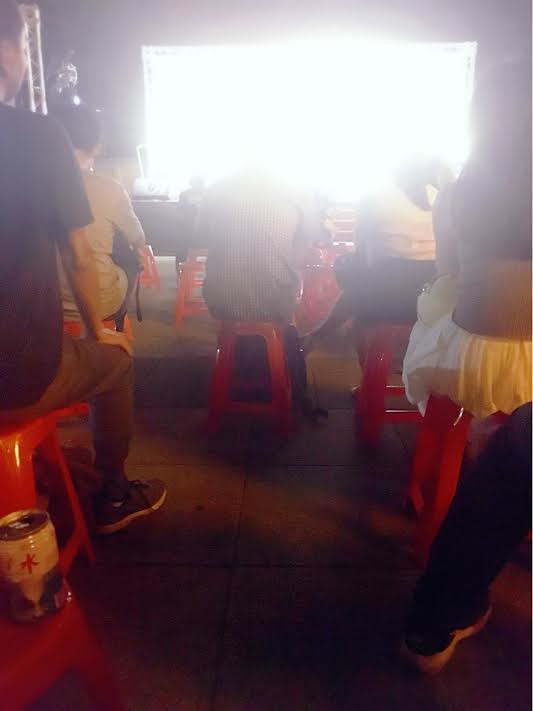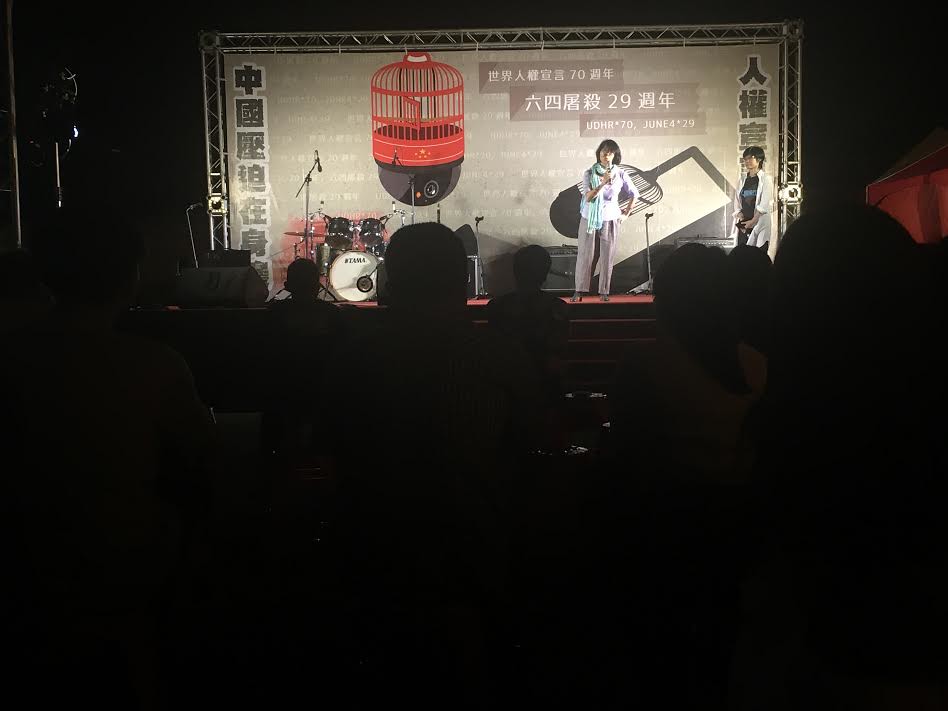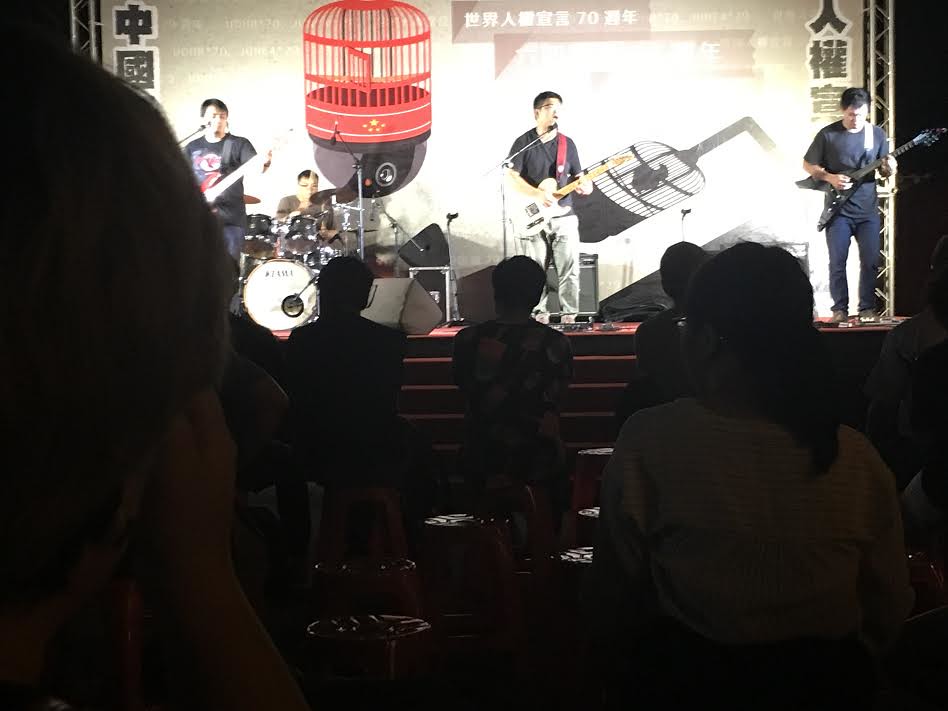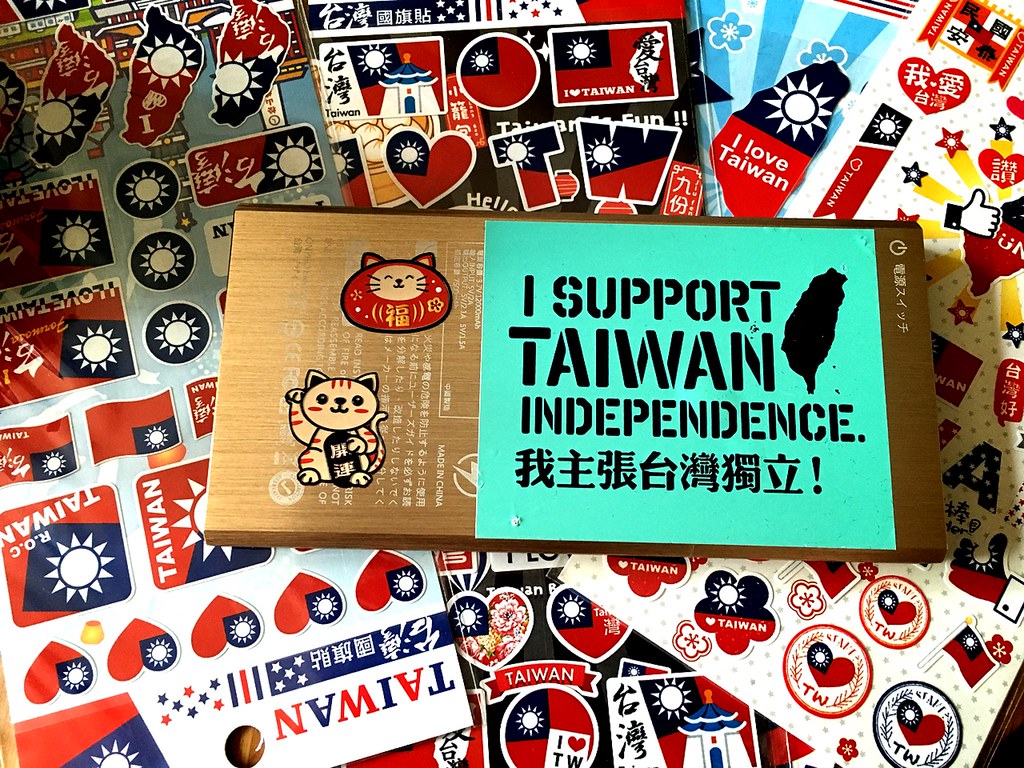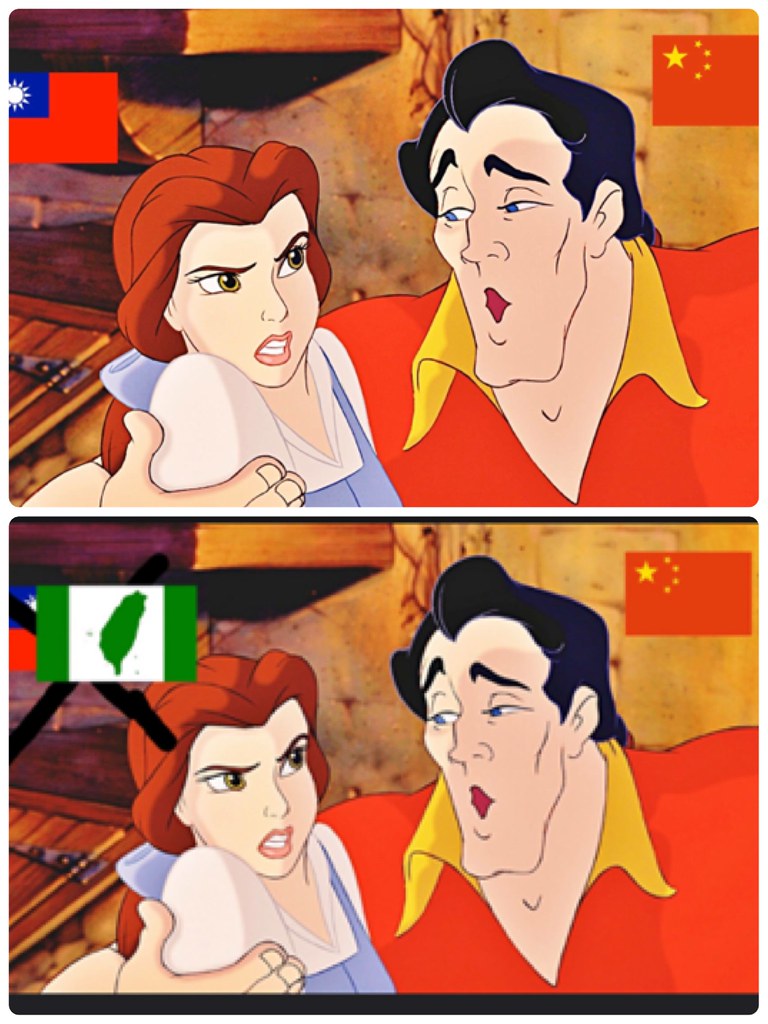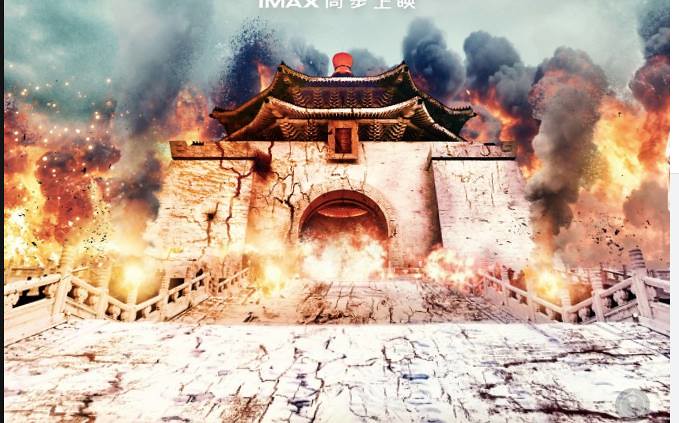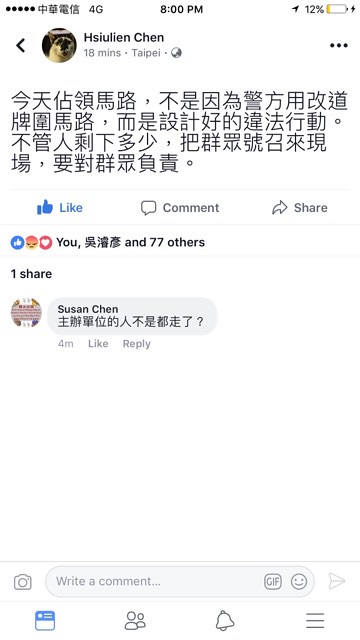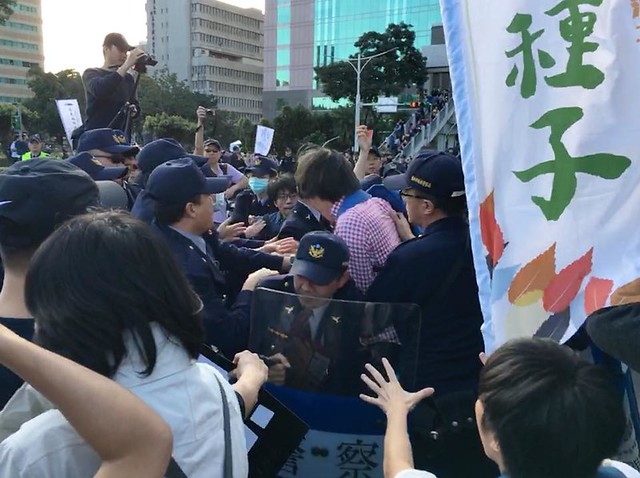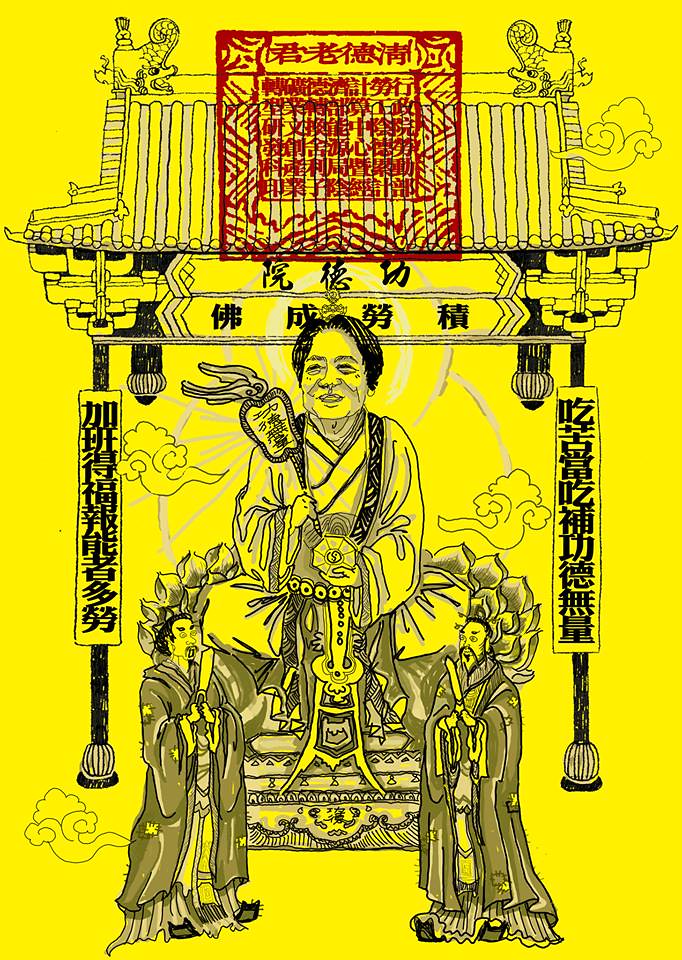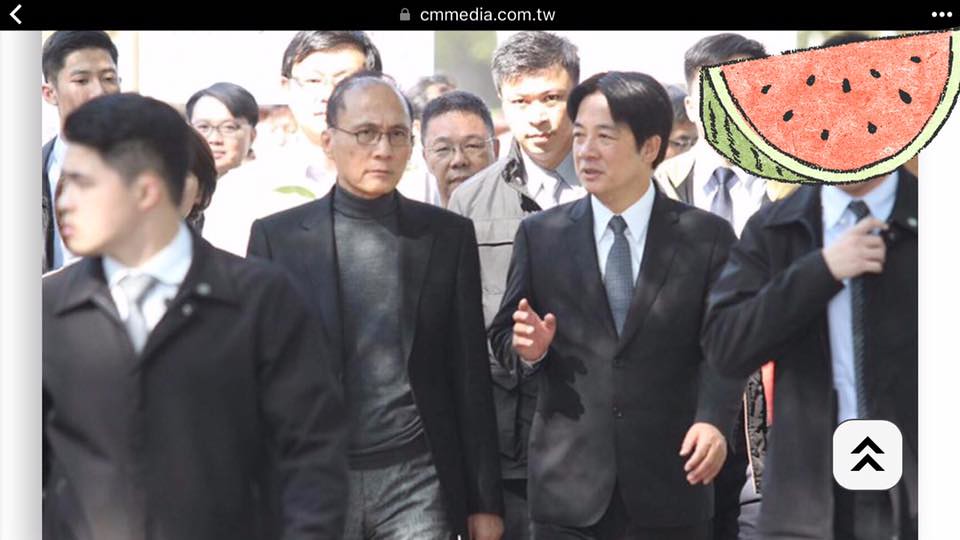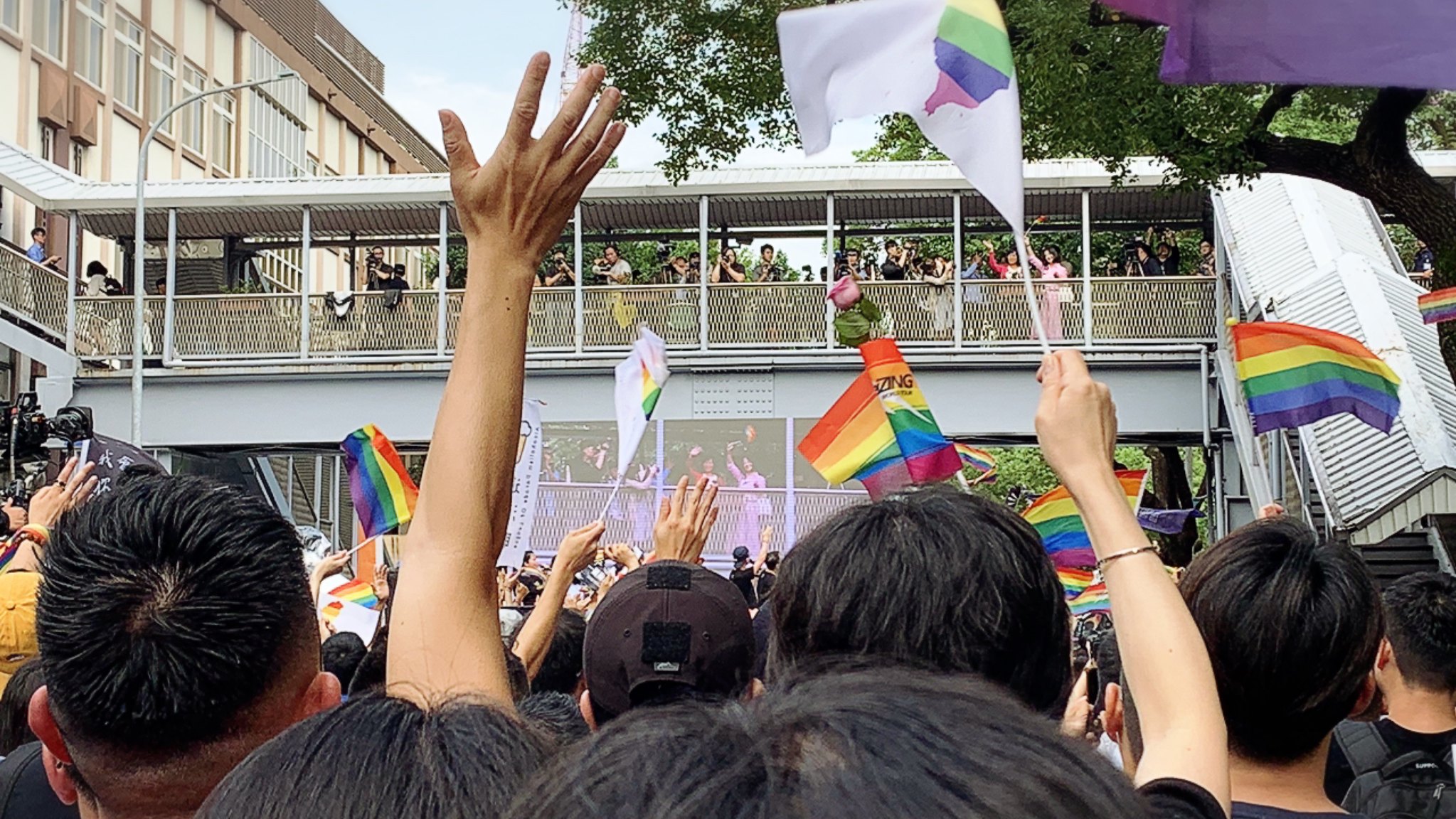
During the Sunflower Movement, Taiwanese rock band Fire Extinguisher sang that "the sky is brightening" (“天色漸漸光”)in their hit song "Island Sunrise".
Five years later, as several thousand people or more stood outside the legislature for hours in the pouring rain, clad in damp rainbow gear under beleaguered umbrellas to watch legislative proceedings on same-sex marriage, the sky brightened again, both literally and figuratively.
First, a rundown of how the legislative proceedings went (for a summary of goings-on at the rally, check out New Bloom, and here's my summary of what's happened over the past few weeks). The morning was a bit chaotic, with proceedings kicking off late, and every legislator being given three minutes to voice their opinion, time which many (though not all) legislators took. Freddy Lim and You Mei-nu spoke particularly articulately in favor of equality, while anti-equality legislators, as usual, voiced concerns that defied logic. These "concerns" included points such as "if we pass this, then referendums have no meaning!" (when the reason why this bill creates a separate law rather than changing the civil code is due to the referendum results) and questioning whether the legislature actually had to listen to the court (...uh, yes).

Then the Executive Yuan bill went through a line-by-line reading and passed every article in turn, with some 'controversial' amendments. The crowd cheered and proclaimed victory as Article 4, which specifically uses the term 'marriage' in relation to same-sex unions, passed with a narrow majority of 66 votes. Reviews continued into the afternoon as legislators skipped lunch. Notably, KMT legislators Jason Hsu and Chiang Wan-an voted for it, with DPP anti-gay legislator Lin Tai-hua voting against.
At that point, I was curled up under my rainbow umbrella with my butt perched on a rain-drenched half-wall outside an entrance to NTU Hospital. I was shunted with much of the crowd to Jinan Road, as the main rally on Qingdao Road was at capacity. Around me, scores of young Taiwanese were following live feeds on their phones of the legislative proceedings nearby (a jumbo screen on Qingdao Road had a live feed for people on that side).

I ran into a friend and we grabbed coffee together as the review dragged. The rain continued to pummel the attendees still outside the legislature. But you know what? Most of them stayed. Hours it dragged on, and let's be honest, legislative proceedings are kind of boring. Connectivity was awful. Everyone was soaked despite having umbrellas and rain ponchos. There was nowhere to sit. But they stayed - thousands, maybe tens of thousands - to watch legislation drag on together on a screen most of them couldn't actually see.
By the time I made it back to the legislature, the rain let up. The sky brightened.

A few more controversial things happened - a last-minute motion by the NPP to deal with the international marriage issue (so that foreign nationals from countries that don't recognize marriage equality would be able to marry their same-sex Taiwanese partners) failed, with the entire DPP voting against it...for no good reason. The clause that would allow people to adopt the biological children of their same-sex spouse, but not to jointly adopt an unrelated child, remained in place (with no changes to the lack of access to fertility treatments for same-sex couples, and no surrogacy services in Taiwan).
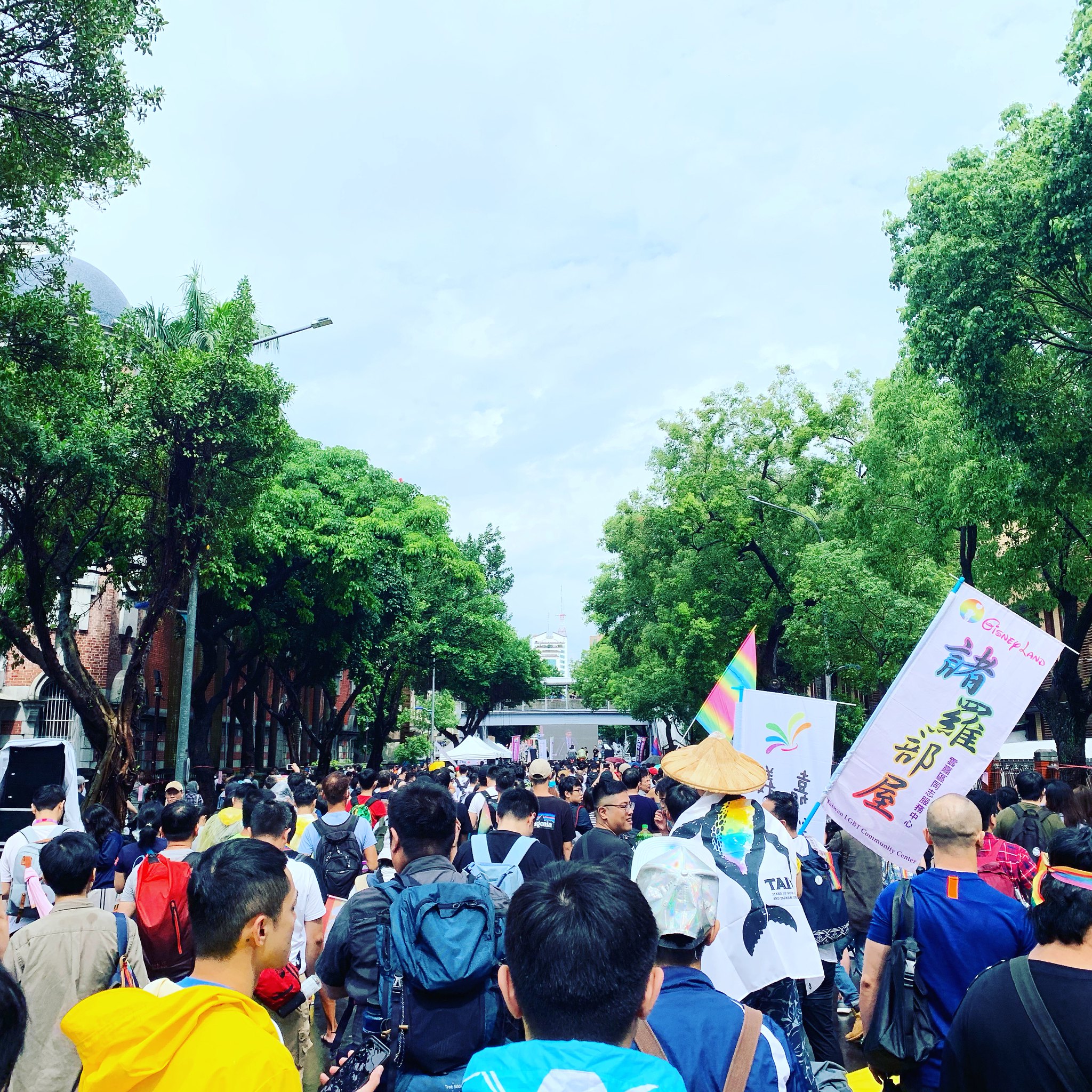 \
\But the sky brightened nonetheless. The proceedings dragged on. The people stayed as the rain dissipated and the sun came out, turning puddles of cool rainwater into humid vapor. I ran into another friend and we stood on the now somewhat-less crowded Qingdao Road, steaming in our clothes as the final articles passed review, and hopeful young activists clad in rainbows counted down each one.

Then it was time for the final countdown - the vote on the overall bill. A flawed bill that does not grant true marriage equality, but a form of same-sex marriage (using the word "marriage") nonetheless. When it passed, the crowd erupted. Some screamed, some cried. The sun shone bright as Taiwan became the first country in Asia to give same-sex couples access to their right to marry: a massive shift in the mood and the weather from morning to afternoon.
The wait from the beginning of the session until the final vote was about 6 hours - approximately 10am to 4pm. But those activists had been standing in the metaphorical rain for far longer than that. The battle for same-sex marriage in Taiwan has been shorter than in many other countries: it wasn't an issue being discussed widely just 5 years ago, when the sky brightened for the Sunflowers (though dedicated activists had been working on it in smaller numbers for some time prior to that). The fight, however, was as vicious and all-consuming as this morning's rain, and it's not over yet.
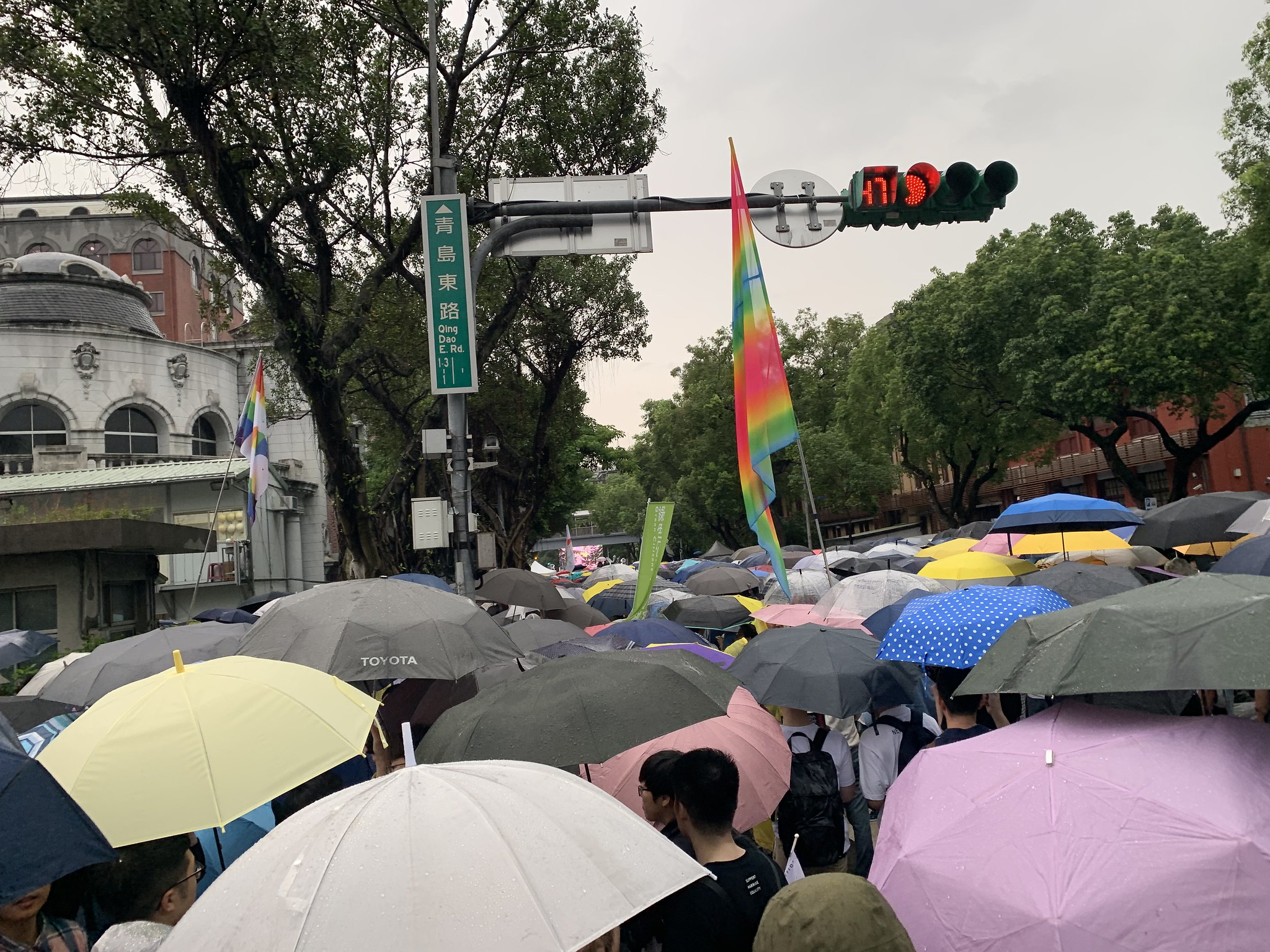
All I can say is that I am just so impressed with Taiwan today. If you thought the dedication of the Sunflowers was a thing of the past, I submit humbly that it continues in a different form, through a different kind of adversity.
I don't imagine there are many countries that would end a marriage equality rally with a performance by a black metal band, as Taiwan did. I don't think there are many where 10,000 or more people would stand resolutely and unflinchingly in the soaking rain just to be physically present for an interminable legislative session. The level of civic engagement continues to impress me so much, and proves that Taiwan cannot be grouped so easily as a stereotypical 'Confucian', 'collectivist' society with wholly conservative values. It may be true that many young Taiwanese won't engage with their more conservative elders on these issues, but it's not true that they won't find other ways to oppose the old order of unfairness and inequality and a million -isms and phobia that those elders represent.
One of the arguments of the anti-gay camp is that ideas like marriage equality are 'Western' or 'foreign' and go against Taiwan's 'traditional culture' (they say 'Chinese' but I won't.)
But of course equal rights have been a part of Taiwanese culture for some time now, and there is no incompatibility with Taiwanese culture (any incompatibility which seems to exist has been invented for political purposes).
So it really mattered that the people in the front rows and on stage, the crowds on camera were overwhelmingly Taiwanese. This movement was started by Taiwanese, carried by Taiwanese and the success they brought about yesterday was done by Taiwanese. There was no 'Western infiltration' about it. (In fact, the anti-gay side is the one that had to look to the West to figure out how to spread its hate, bringing in foreigners like Katy Faust to speak against equality and justice.) It's important to keep repeating this, because that same opposition keeps accusing the pro-equality movement of doing the same, when it emphatically has not.
As an American who was in Taiwan for most of the culmination of the marriage equality movement in the US and so unable to participate, it felt important to be a part of the support to make it happen in Taiwan, because it's my home. I have a place here too. And that place was being part of the crowd. Not onstage like a reverse Katy Faust, not a key part of the movement or even vital to it, but a participant who adds her physical presence to the crowd.
And it may be true that the DPP will suffer for this in 2020, but somehow I doubt it. They may lose, but I don't think it will be because of this. That they managed to get it through despite absolutely vicious opposition might just win back the young voters who were talking about abandoning them. Besides, people talk about the 2018 KMT sweep as though it had anything to do with conservative 'family values', when it didn't. It was about local governance - and we know that because the NPP drastically expanded its electoral reach despite being wholly pro-equality. They would have suffered the way the DPP did if marriage equality were truly the wedge issue that opponents and pessimists say it is. Most likely scenario? By 2020 same-sex marriage will be normalized, and no longer an issue for the DPP. After all, something had to be done after the 2017 ruling. Best-case scenario? This will actually work in their favor as the progressives who were disenchanted with them come running back.
Besides, in every country where same-sex marriage or marriage equality has been passed, it has simply ceased to be an issue (unlike, say, abortion, which remains contentious in the US because some people hate women.) The party that passed it has generally not suffered electoral losses as a result, as people learn fairly quickly that their gay fellow citizens are indeed normal human beings who deserve equal rights and what was all the fuss about anyway? I can't imagine Taiwan wouldn't go the same way.
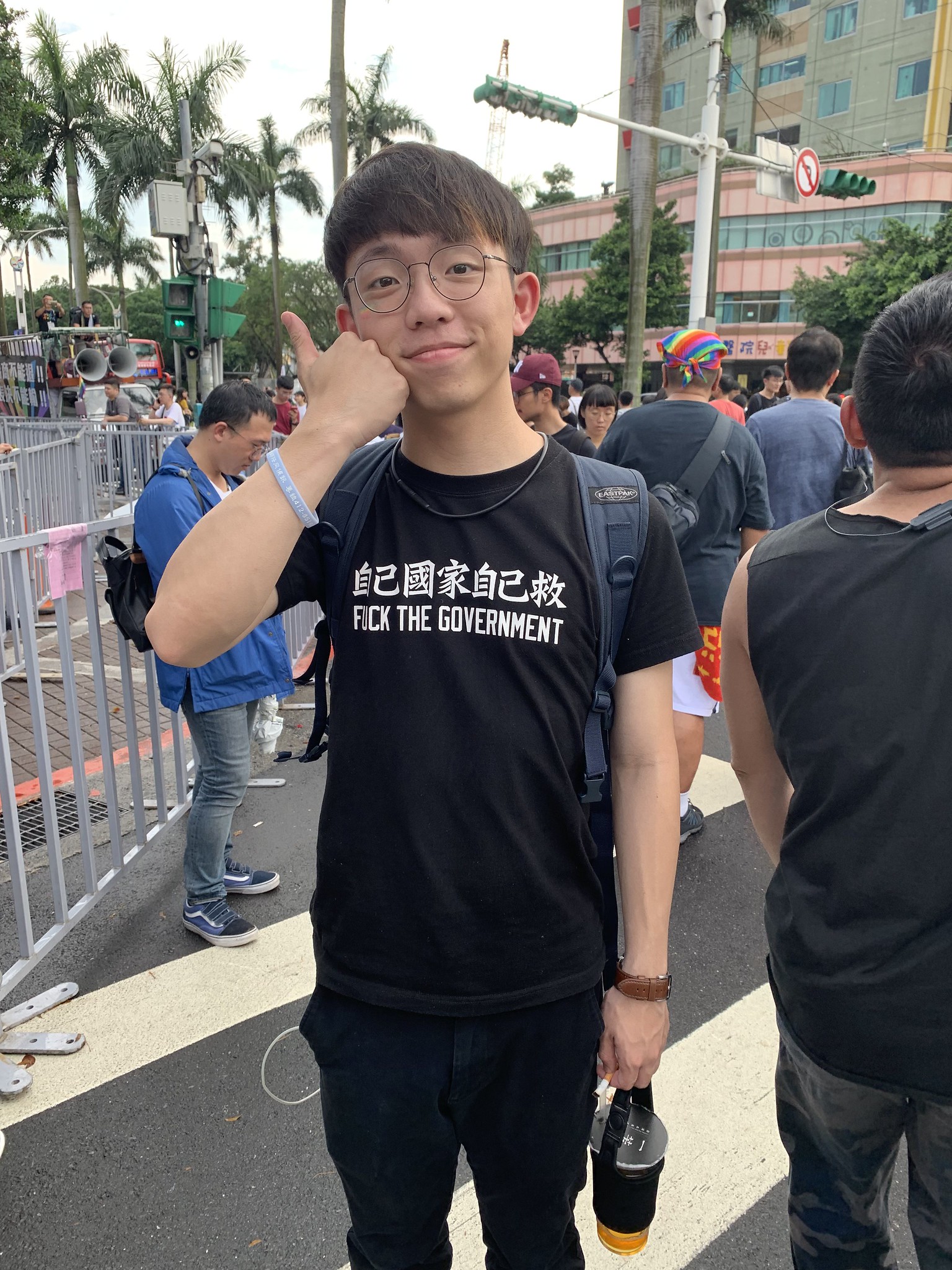 |
| And if you think this has nothing to do with the spirit of the Sunflowers, this guy is here to tell you that you are wrong. And he wasn't the only one. |
If they do lose in 2020 over this, then they will have stood for what was right in the face of a tyrannical, hateful majority. True liberal progressives won't forget that, and it will come back to them someday. It would be sad to see if that's the case, but the solution could never have been for them simply not to stand for what was right.
As a Facebook friend posted regarding the anti-equality referendum result last year (kept anonymous as the post is not public:
"And yet, the government went ahead with the law. Why? Well, this is what distinguishes democracy from populism. Democracy is not merely about majority voting: it is also about adhering to basic principles protecting minorities from the tyranny of the majority."
But they did, and the future leaders of Taiwan did as well. We stood in the rain for hours...for years.
The fight for full equality is not over, but the sky is brighter now, and the future is too.
